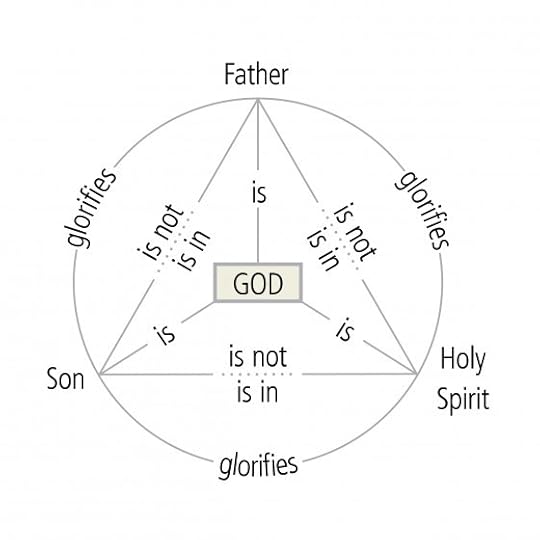Justin Taylor's Blog, page 161
April 25, 2013
A Book Recommendation from John Piper
 John Piper, writing on Jon Bloom’s new book, Not by Sight: A Fresh Look at Old Stories of Walking by Faith (currently 48% off at Amazon):
John Piper, writing on Jon Bloom’s new book, Not by Sight: A Fresh Look at Old Stories of Walking by Faith (currently 48% off at Amazon):
These meditations are not your ordinary exposition. These are stories. Really good stories. They are rooted in what the Bible says. The creative additions never go beyond what really could have happened. The truths that Jon sees for our lives are based not on what might have been but on what was. The might-have-beens give added flesh to the bones of truth. They are touchable.
Jon is persuaded that if you know the truth, the truth will make you free. And truths about the greatness of Christ are the best ones for freeing us from unbelief. And to be freed from unbelief is to be freed from fear and greed and pride and anger and lust and despair and a hundred other permutations of life-ruining sins.
New Christians or old Christians, what we need in order to walk by faith and not by sight is glimpses. I know that sounds contradictory. We need sight not to walk by sight? But it’s not contradictory, because the sight we need is not a sight of what the day holds, but a sight of who holds the day.
And even that sight happens by looking through the window of the word. Which means we see with our ears. Yes, it sounds strange. But listen: “The Lord revealed himself to Samuel at Shiloh by the word of the Lord” (1 Sam. 3:21). So we “look” through the window of the word with our ears, and what we hear is a sight of God!
If that makes no sense to you, here’s a suggestion. Pick a chapter in this book whose title looks relevant for you. Listen as you read. Look through what you hear. And see if Jesus does not show himself to you in such a way that you trust him more.
That is what Jon Bloom desires. That is what we both are praying for—your joy of faith. So yes, I wrote this for my joy. And mine will be full if I hear that my happy commendations and Jon’s beautiful narrations awaken in you the gladness of walking by faith, Not by Sight.
Contextualizing the Gospel in the Urban Context
D. A. Horton—the Lead Teaching Elder at Koinonia Bible Church, the Executive Director of ReachLife Ministries, and the author of G.O.S.P.E.L.—is one of the most gifted people I know at contextualizing the gospel for the urban context.
He recently spoke at Advance13, and his 20-minute talk is well worth listening to:
April 24, 2013
What Do We Mean by “Person” and “Essence” in the Doctrine of the Trinity?
You can watch or listen to the following lecture for free from R. C. Sproul:
The entire series of six lectures on “The Mystery of the Trinity” can be accessed for free from Ligonier.
I’ve posted this before, but in case it would help anyone, here’s a diagram that captures some of the relationships within the Godhead:
The internal lines identify the nature, substance, or essence of each person:
The Father is God.
The Son is God.
The Holy Spirit is God.
Basil of Caesarea, writing in the 370s (Letter 236.6), gives a good explanation for why we say “God the Father,” “God the Son,” and “God the Spirit”:
The distinction between ousia and hupostasis is the same as that between the general and the particular; as, for instance, between the animal and the particular man.
Wherefore, in the case of the Godhead, we confess one essence or substance so as not to give a variant definition of existence, but we confess a particular hypostasis, in order that our conception of Father, Son and Holy Spirit may be without confusion and clear.
If we have no distinct perception of the separate characteristics, namely, fatherhood, sonship, and sanctification, but form our conception of God from the general idea of existence, we cannot possibly give a sound account of our faith.
We must, therefore, confess the faith by adding the particular to the common. The Godhead is common; the fatherhood particular. We must therefore combine the two and say, I believe in God the Father.
The like course must be pursued in the confession of the Son; we must combine the particular with the common and say I believe in God the Son, so in the case of the Holy Ghost we must make our utterance conform to the appellation and say in God the Holy Ghost.
The lines of the triangle represent two sets of propositions. First, they remind us that while each of the persons in the Godhead is God (fully divine), the persons are distinct. In other words:
The Father is not the Son.
The Son is not the Father.
The Father is not the Holy Spirit.
The Holy Spirit is not the Father.
The Son is not the Holy Spirit.
The Holy Spirit is not the Son.
After all, the Father is never “sent” in Scripture. Nor is he incarnated or poured out at Pentecost. The Spirit does not die on the cross for our sins. The Father begets the Son, not vice-versa. The Spirit proceeds from the Father and the Son.
Another aspect indicated by the lines on the triangle is that of mutual indwelling (or perichoresis). The three persons indwell each other in the one being of God. So:
The Father is in the Son.
The Son is in the Father.
The Father is in the Holy Spirit.
The Holy Spirit is in the Father.
The Son is in the Holy Spirit.
The Holy Spirit is in the Son.
Finally, each of the three persons in the one being of God glorify one another. As Gregory of Nyssa writes, there is a “revolving circle” of glory:
The Son is glorified by the Spirit; the Father is glorified by the Son; again the Son has His glory from the Father; and the Only-begotten thus becomes the glory of the Spirit. . . . In like manner, again, Faith completes the circle, and glorifies the Son by means of the Spirit, and the Father by means of the Son. (Gregory of Nyssa, On the Holy Spirit, in NPNF, Second Series, 5:324).
If you are looking for some good books to read on this all-important topic, Fred Sanders says that Our Triune God: Living in the Love of the Three-in-One (by Ryken and LeFebreve) “is the best book to put in somebody’s hands if they’re asking for an introduction to the doctrine.”
J. I. Packer says that The Holy Trinity: In Scripture, History, Theology, and Worship (by Robert Letham) “is far and away the best big textbook on the Trinity that you can find, and it will surely remain so for many years to come.”
And the best two books on why this matters and how it relates to all of life and theology, see Fred Sanders’ The Deep Things of God: How the Trinity Changes Everything and Mike Reeves’ Delighting in the Trinity: An Introduction to the Christian Faith.
How Planned Parenthood Is Different than Kermit Gosnell
 Trevin Wax imagines a press release from Planned Parenthood:
Trevin Wax imagines a press release from Planned Parenthood:
In abortions after the first trimester, Planned Parenthood physicians never “snip the necks” of babies outside the womb. We take great care to make sure that the snipping happens inside the birth canal moments before birth, not after. . . .
Unlike Dr. Gosnell, Planned Parenthood doctors are professional and courteous and treat patients with respect. They perform abortions with surgical precision and a smile. The possibility of a botched abortion or a baby born alive is very rare. Women can rest assured – the doctor will not err; the fetus will not escape. Our doctors are highly skilled in stopping the heartbeats of the little ones.
Read the whole thing here.
April 23, 2013
Put a Pebble in His Shoe
I think that in some circles there’s pressure for Christian ambassadors to “close the sale” as soon as possible. When pressed for time, get right to the meat of the message. Get to the Gospel. If the person doesn’t respond, you’ve still done your part. Shake the dust off your feet and move on.
A wise ambassador, though, weighs his opportunities and adopts an appropriate strategy for each occasion. Sometimes, the simple truth of the cross is all that’s needed. The fruit is ripe for harvesting. Bump it and it falls into your basket.
Usually, though, the fruit is not ripe; the nonbeliever is simply not ready. He may not even have begun to think about Christianity. Dropping a message on him that, from his point of view, is meaningless or simply unbelievable doesn’t accomplish anything. In fact, it may be the worst thing you can do. He rejects a message he doesn’t understand and then he’s harder to reach next time.
Now here is my own more modest goal. I want to put a stone in his shoe. All I want to do is give him something worth thinking about. I want him to hobble away on a nugget of truth he can’t simply ignore because it continues to poke at him.
I think this is wise counsel. Of course we want our hearer to be saved, and we should pray toward that end. But an all-or-nothing approach to evangelism can be paralyzing for some of us. I sometimes have prayed for the first step of a response simply being a sleepless night as the person has a hard time shaking a certain truth or question.
For more on this approach by Koukl, see his excellent book, Tactics: A Game Plan for Discussing Your Christian Convictions.
April 22, 2013
A Conversation between John Wilson and Greg Thornbury on Classical Evangelicalism
Books & Culture editor John Wilson interviews Union University philosophy professor Gregory Alan Thornbury about his new book Recovering Classic Evangelicalism: Applying the Wisdom and Vision of Carl F. H. Henry (Crossway, 2013). No softball questions here!
The Latest “Dispatches from the Front” DVD: Only $5
 Jesus reminded us that he will not return until the Gospel is proclaimed to all the peoples of the earth, and that as His witnesses we must take up our cross daily to follow him—wherever that may lead. Both truths are on display in the sixth episode of the Dispatches from the Front DVD series, “The Power of His Rising,” as we see afresh the costly price of grace and the call for risk-taking Gospel ministry. May none of us remain unchanged.
Jesus reminded us that he will not return until the Gospel is proclaimed to all the peoples of the earth, and that as His witnesses we must take up our cross daily to follow him—wherever that may lead. Both truths are on display in the sixth episode of the Dispatches from the Front DVD series, “The Power of His Rising,” as we see afresh the costly price of grace and the call for risk-taking Gospel ministry. May none of us remain unchanged.
WTS is offering the single DVD of episode 6 for just $5 (67% off). The six-volume set will also be on sale for $40 (56% off). The sale will run for three days (through this Thursday). You can also download a free study guide for the film.
Here’s a description of this episode:
Over two billion people in the world have no access to the Gospel—no Bible, no church, no Christians, no hope. Since many of them live in countries closed to traditional missionaries, how will they hear the Good News? One way is that Christ is calling and equipping men and women with skills—professionals—to use their talents to reach people who are hard to get to. The Power of His Rising is an inside look at how this is unfolding in South Asia, where baristas and bakers, pilots and farmers are a force for the Gospel! It’s an amazing journey by land, sea and air—down crowded streets and remote rivers—to find light shining in darkness and persecuted believers singing because of Jesus! Dispatches from the Front opens yet another window to see Christ at work in the world through His endless life and relentless grace!
Here’s a trailer for this episode:
Be on the look-out next year for a book on Dispatches from the Front that that tells some of these stories.
And here are some more endorsements for the series:
“Dispatches from the Front is a series of DVDs which show first-hand the work of missionaries and pastors in some of the tougher parts of the world. I have just watched the episode on Albania, Kosovo, and Montenegro. The low-key presentation enhances the drama and the beauty of the stories told. But be aware: this is sobering stuff. I came away ashamed of my own lack of zeal for the Lord’s work and my ingratitude to him for all of the material comforts I enjoy. This is not a celebration of the pyrotechnic entertainment of the American church; it is an account of genuine works of God. It will convict you of your own sin, drive you to Christ, and encourage you to pray for Christians working on the front lines of the Kingdom and to reassess your own priorities wherever you are. ”
—Carl Trueman
“Beware of watching these Dispatches if you don’t like being moved and inspired and shaken out of the ruts of your life. My wife and I were riveted in watching the frontline reports of God’s work recorded in the Dispatches from the Front. This is the sort of information that builds faith in the present providence of God over his mission, and stirs up action for the sake of lost and hurting people near and far. I would love to see thousands of people mobilized as senders and goers for the sake of the glory of Christ and the relief of suffering on the frontiers, especially eternal suffering.”
—John Piper
“Dispatches from the Front is a thoughtful, moving, understated, and ultimately convicting series of videos depicting the work of the gospel in some of the most challenging corners of the world. Far from glorying in celebrity missions, the stories in these videos depict the transforming power of the gospel of Jesus Christ, sometimes in the teeth of virulent opposition. Here are brothers and sisters in Christ who in God’s grace display faithfulness and transcendent joy, unflagging zeal to share the gospel, and an unfettered allegiance to King Jesus. To watch the kingdom advance in the teeth of these challenges is to learn humility and rekindle contrition, faith, and intercessory prayer.”
—D. A. Carson
Top 10 Ways to Ruin Your Child’s Imagination
 Trevor Cairney’s summary of Anthony Esolen’s Ten Ways to Destroy the Imagination of Your Child:
Trevor Cairney’s summary of Anthony Esolen’s Ten Ways to Destroy the Imagination of Your Child:
1. Begin by rearing children almost exclusively indoors – give in to the threats of the outdoors, don’t risk allowing them to have unbridled experiences out of our observable space. Lock them up in classes and organized instruction and avoid giving them opportunities to run free.
2. Never allow children to organize their own worlds of exploration of that which is interesting or challenging—replace the spontaneous and child initiated and replace it with 7 days of structured activities controlled by others and a timetable that leaves no scope for exploration, time wasting, and contemplation.
3. Don’t risk allowing children to explore machines or encounter those who know and use them—privilege safety above all things, cut craftsmen from the child’s world, despise practical and craft knowledge, forget about the challenge and fascination of maps, diagrams and the like.
4. Replace fairy tales with cliches and fads—water down stories to remove the evil and violent, look for tales that ‘flatten’ and homogenize, replace fundamental truths with cliches and ideological manifestos.
5. Denigrate or discard the heroic and patriotic—remove fathers who are heroes, men who are warriors, lose sight of the ‘piety’ of a place like the Welsh uplands and coal mines of Richard Llewellyn’s ‘How Green was My Valley.’ Ignore the dignity of simple people and their ways.
6. Cut down all heroes to size—don’t allow a sentimental admiration of a hero, dismiss courage, beat from our boys any hint of hero worship. Instead grow men ‘without chests’ who spend hours on violent video games but never rumble in the back yard.
7. Reduce all talk of love to narcissism and sex – replace the music and tenderness of love in the Odyssey, or the poetry of Stephen Foster for a lost love, with a reduction of love to the mechanics of sex, “reduce eros to the itch of lust or vanity.” Replace the first pangs of curiosity of a boy for a girl, or a girl for a boy, with a bombardment of images of what love isn’t.
8. Level all distinctions between man and woman—just as individual personalities are washed from our classrooms, so too, reduce all differences of gender, and convince children that boys and girls are just the same.
9. Distract the child with the shallow or unreal—fail to encourage the child to hear and sharpen the senses before creating, abolish solitude and silence, fill the child’s life with the ‘noise’ of television, video games and other forms of banality. Don’t just give decibels of noise but rather, more importantly, mental and spiritual interference. Separate the child from the relationship of family, neighbours and friends and place them in after school care, preschools etc.
10. Deny the transcendent—deny the idea of God, ignore the mystery of faith and religion, ensure that unlike the ancients in the caves of Lascaux there is little opportunity to contemplate and create a veritable cathedral born of their imaginings. Do everything possible to erase any opportunity for your child to search out the inscriptions of praise on each human heart.
April 20, 2013
10 Scriptural Principles on the Nature of Human Government
From J. Budziszewski, Evangelicals in the Public Square: Four Formative Voices on Political Thought and Action (Baker Academic, 2006):
God is the true sovereign; he ordained all human government for the good of man, whom he made in his image (Ps. 22:28; Rom. 13:1, 3-4; Gen. 1:27).
Although God originally chose only one nation, he desires ultimately to draw all nations into the light of his Word (Isa. 49:6; Rom. 10:12; Rev. 21:23-24).
He disciplines the nations according to their deeds (Jer. 18:7-10; Jer. 5:28-29).
He also disciplines their rulers (Dan. 2:20-21; Jer. 25:12; Dan. 4:27).
In general, disobedience to human government is disobedience to God; indeed, government deserves not only obedience but honor (Rom. 13:1-2, 7).
But there are exceptions: Any governmental edict that contradicts the commands of God must be disobeyed (Acts 5:29; Dan. 3:18; Ex. 1:17, 20-21).
The just purposes of human government include the commendation of good, the punishment of evil, the maintenance of peace, and the protection of the oppressed (1 Pet. 2:13-14; 1 Tim. 2:1-2; Isa. 10:1-2).
In pursuance of these purposes, God authorizes human government to use force on his behalf and in grave cases even to take life, though never deliberately to take the life of the innocent (Gen. 9:6; Rom. 13:3-4).
Yet human government cannot fully or permanently redress wrong, because it cannot uproot sin from the human heart; this can be done only by the saving grace of God through Jesus Christ (Jer. 17:9; Isa. 64:6; Rom. 3:22-25).
Moreover, the community of redemption is not the state but the church. No matter how much respect is due to the state, the church is never to be identified with it (John 18:33-36; Acts 20:28).
April 17, 2013
The Secret Reason behind Conspiracy Theories
 Carl Trueman, writing a few years ago:
Carl Trueman, writing a few years ago:
Conspiracy theories have an aesthetic appeal: they make us feel more important in the grand scheme of things than we are. If someone is going to all this trouble to con us into believing in something, then we have to be worth conning; and the impotence we all feel in the face of massive impersonal bureaucracies and economies driven not by democratic institutions so much as multinational corporations is not really the result of our intrinsic smallness and insignificance so much of our potential power which needs to be smothered. Such views play to our vanity; and, to be brutally frank, the kind of virtual solitary vice which so much solipsistic internet activity represents.
Conspiracy theories don’t hold up, though. Nobody is that competent and powerful to pull them off. Even giant bureaucracies are made up of lots of small, incompetent units fighting petty turf wars, a fragmentation which undermine the possibility of the kind of co-ordinated efforts required to pull off, say, the fabrication of the Holocaust. History, humanly speaking, is a tale of incompetence and thoughtlessness, not of elaborate and sophisticated cabals. Evil, catastrophic evil, is not exceptional and brilliant; it is humdrum and banal; it does not involve thinking too much; it involves thinking too little.
For more, see Trueman’s excellent book, Histories and Fallacies: Problems Faced in the Writing of History, especially his chapter on Holocaust denial.
Justin Taylor's Blog
- Justin Taylor's profile
- 44 followers





